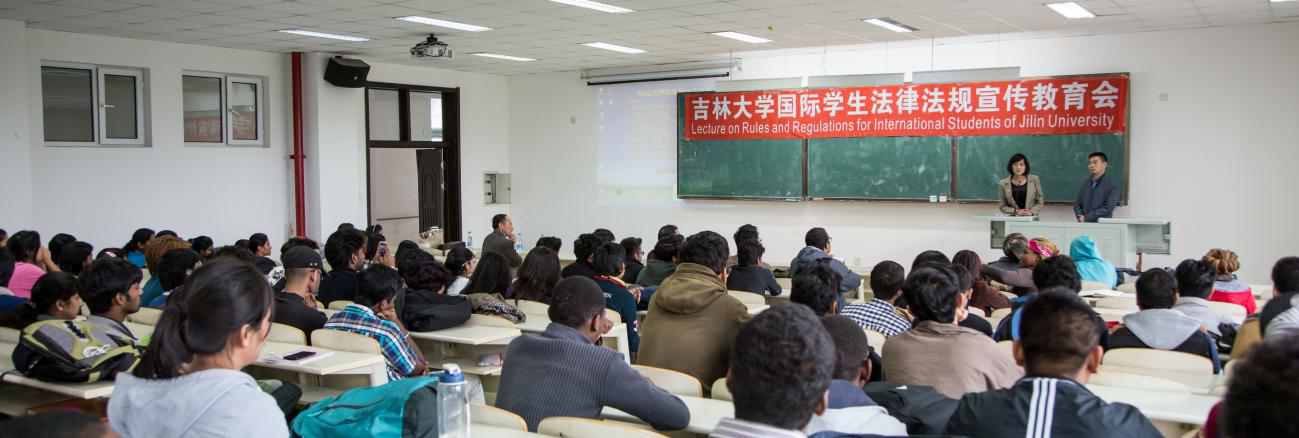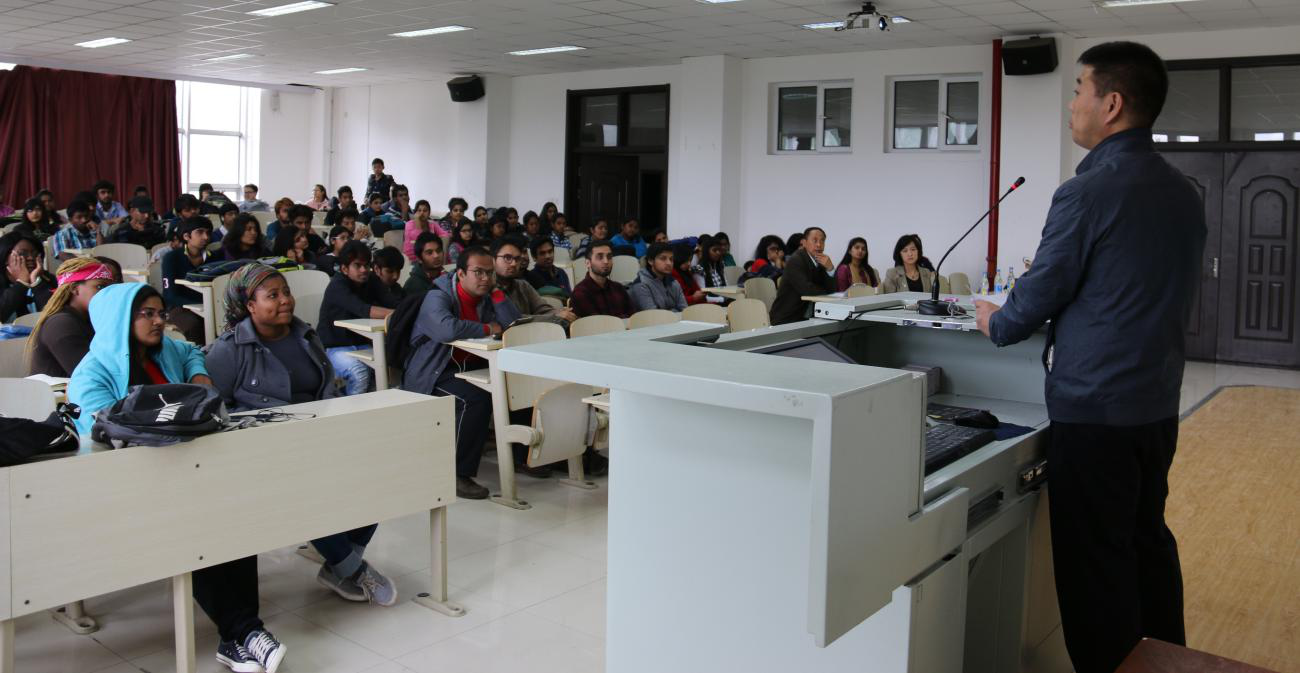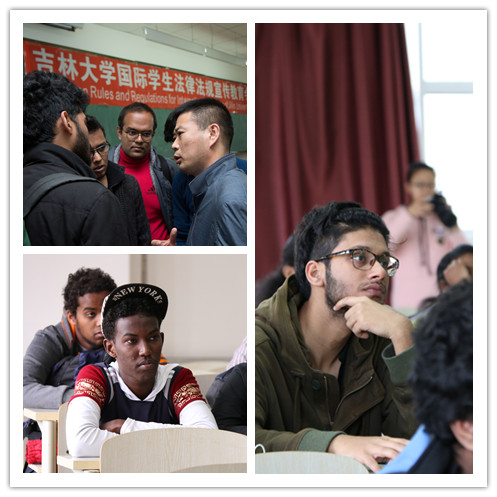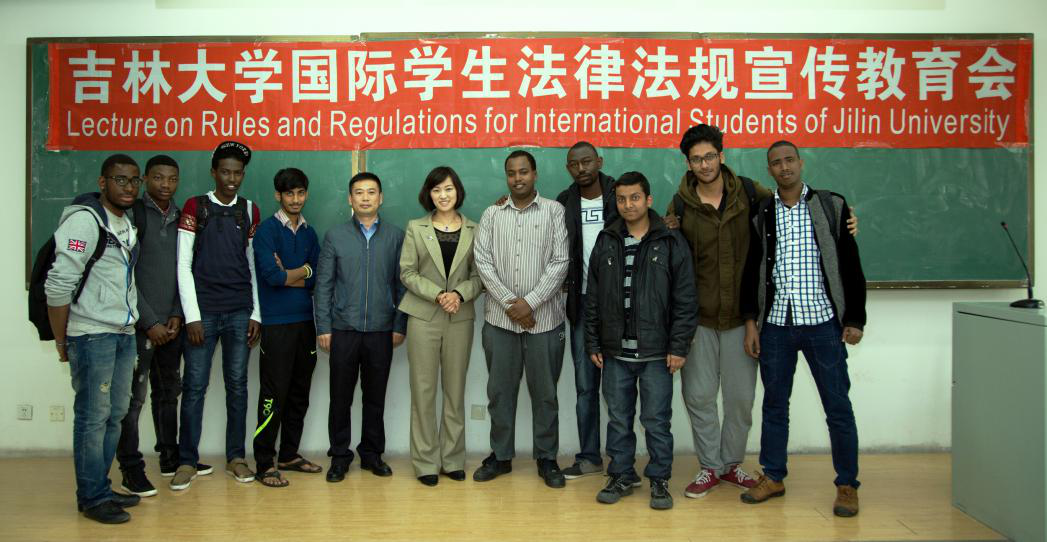College of International Education invited Li Zijia and Sun Xianxiang, two police officers from Changchun Exit-Entry Administration, to give a lecture on exit and entry administration laws and regulations to international students studying in the MBBS program (a clinical medicine program taught in English) in Norman Bethune Health Science Center. The lecture took place in the lecture hall of Li Siguang Building of the Central Campus in the afternoon of May 13th, 2015.

The two police officers, speaking in English, gave a detailed introduction and explanation of the laws and regulations on visa for study in China, residence permit, visa extension, registration for temporary residence and travel. They also introduced the processes of applying for and obtaining a visa. They focused on some of the legal and regulatory issues that international students often ran into during their study in China. They used some typical cases to illustrate the gravity of China’s laws and regulations as well as public security administration. Specifically, the officers said that violations of China’s laws and regulations shall be dealt with sternly and that severe violations shall lead to a shortened stay in China or even deportation.

After the lecture, the two police officers had amicable talks with the international students and answered their questions in detail. They hoped that the international students would comply with the relevant Chinese laws and regulations and respect local customs and practices. They reminded the students to go through visa and other relevant processes in time and watch out for their possessions and safety.

Through this lecture, the international students of Jilin University had a deeper understanding of China’s latest exit and entrance administration laws and relevant clauses on the penalties against violation of public security, thus they had a stronger awareness of knowing and complying with the law. Relevant teachers from College of International Education and Norman Bethune Health Science Center also took part in the lecture.
